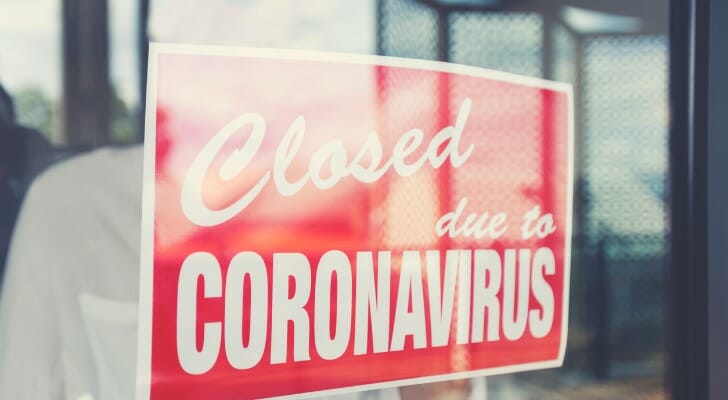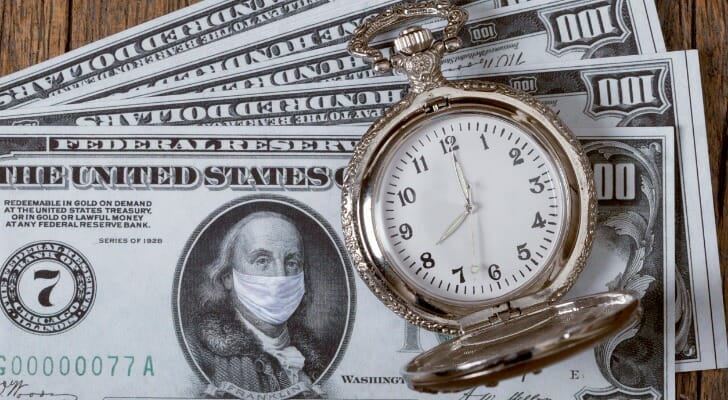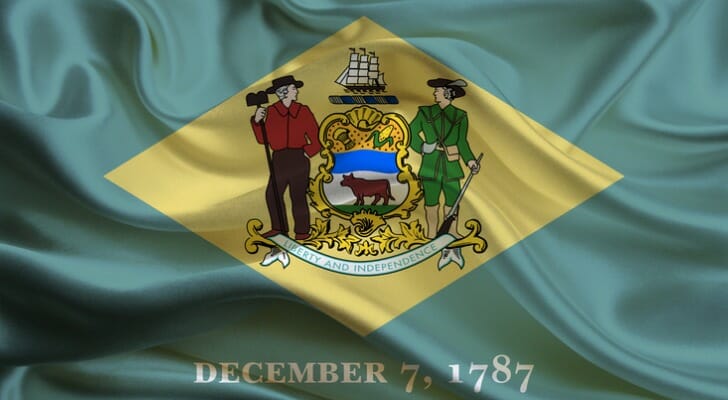As Delaware’s coronavirus cases approaches 3,000, the state has introduced many measures to keep its residents safe and to protect any individuals or small businesses adversely impacted by the outbreak. And the Coronavirus Aid, Relief and Economic Security (CARES) Act provides direct coronavirus crisis government help at the federal level, with several programs for coronavirus relief for businesses. In this guide, we take a closer look at the coronavirus relief programs both at the Delaware and federal levels.
Financial advisors can help you protect your finances while navigating economically difficult times. Find a financial advisor today.
Delaware Coronavirus Relief for Individuals
Unemployment Benefits
Delaware expands its unemployment insurance (UI) benefits for workers unemployed because of coronavirus, or through no fault of their own. The state now waives the one-week waiting period, allowing individuals to receive benefits immediately. And claimants will no longer need to fulfill the work search requirement during the COVID-19 emergency.
Find more information on eligibility requirements and applications here.
Rent and Mortgage Relief
Governor John Carney’s sixth modification to the Delaware State of Emergency Declaration offers multiple protections to tenants and homeowners affected by the coronavirus outbreak. Specifically, the declaration prevents landlords from evicting residents or charging late fees and interest during the COVID-19 crisis. Governor Carney’s order also prevents lenders from issuing residential foreclosures.
Utilities Benefits
The sixth modification also prevents residential utilities service providers from enforcing service terminations or charging fees for late payments. The provision, which includes counties, municipalities and cooperatives, applies to the following utilities providers: electric, gas, propane, telegraph, telephone, water, wastewater, cable television or internet providers.
Delaware Coronavirus Relief for Small Businesses

Hospitality Emergency Loan Program
The Hospitality Emergency Loan Program (HELP) provides small businesses and nonprofits monthly no-interest loans of up to $10,000 per business. HELP loans are strictly for coronavirus-impacted businesses in the hospitality industry. But the program has numerous eligibility requirements. See more information about them here.
Federal Coronavirus Relief for Individuals
The coronavirus stimulus package features a number of provisions offering financial protections to individuals impacted by the coronavirus pandemic. This includes a tax deadline extension, coronavirus relief for rent and mortgage payments, enhanced coronavirus unemployment benefits, paid coronavirus sick leave and family leave, coronavirus student loan relief programs and various other relief options.
When it comes to unemployment benefits, the government now offers claimants 13 additional weeks of benefits, along with a federal boost of $600 per week. And the Cares Act includes three main unemployment assistance programs, including Pandemic Unemployment Compensation (PUC), Pandemic Emergency Unemployment Compensation (PEUC) and Pandemic Unemployment Assistance (PUA). As for sick leave and family leave, individuals can receive paid time off if they’re experiencing symptoms or have a medical diagnosis, or if they’re caring for a dependent or household member impacted by the virus.
But perhaps the most significant provision within the Coronavirus Aid, Relief and Economic Security (CARES) Act is the stimulus checks. The government distributes these cash payments to individuals, married couples and heads of household, but only those with certain adjusted gross incomes (AGIs) qualify. Specifically, individuals making $75,000 or less qualify for $1,200 maximum, while heads of household also qualify for up to $1,200. Couples with an AGI of $150,000 or less an receive a maximum of $2,400, plus $500 per dependent. But each check amount phases out by $5 for every $100 spent above the threshold. Our stimulus check calculator can help you determine how much you’ll receive.
Federal Coronavirus Relief for Small Businesses

The stimulus package also features a range of protections for small businesses suffering revenue loss. Though the first round of the Small Business Administration’s Paycheck Protection Program (PPP) ran out of funding, the program received an additional $310 billion on April 23, 2020. The PPP provides businesses 2.5 times its average monthly payroll costs up to $10 million, excluding salaries of $100,000 or more. If you’d like to apply, you can do so through a PPP loan lender.
Economic Injury Disaster Loans (EIDLs) served as a major form of relief for small businesses, but the program recently ran out of money. Under the EIDL program, businesses in state’s with an disaster declaration could get emergency cash advances of $10,000, with loans up to $2 million. The program is expected to receive additional funding.
Coronavirus-impacted small businesses should also consider the SBA Debt Relief Program, SBA 7(a) loans, microloans, 504 loans and Community Advantage loans.
The Bottom Line
Delaware offers various options for individuals in need of coronavirus-related relief, but the state doesn’t provide much assistance for small businesses. Therefore, if you’re a small business owner, it’ll be better to consider federal programs.
Tips For Managing Finances During the Coronavirus Crisis
- Whether for investment planning, taxes, retirement planning or insurance needs, financial advisors can offer a holistic approach to helping you meet your goals — even during times of crisis. If you’re struggling to find the right advisor, our financial advisor matching tool connects you with up to three advisors for free.
- Coronavirus relief isn’t just provided at the state and federal levels. Countless companies have also created financial assistance programs for those in need. See our list of the companies helping coronavirus-impacted people.
Photo credit: ©iStock.com/Veronaa, ©iStock.com/courtneyk, ©iStock.com/izzetugutmen
